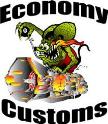860-589-1255 | 201 Terryville Rd Bristol, CT 06010
AUTONET TV
-
Contact
-
Working Hours
- Monday 8:00AM - 5:00PM
- Tuesday 8:00AM - 5:00PM
- Wednesday 8:00AM - 5:00PM
- Thursday 8:00AM - 5:00PM
- Friday 8:00AM - 5:00PM
- Saturday Appointment Only
- Sunday Closed
What Our Customers Are Saying
-
 I have brought my car here so many times I've lost count and will continue to bring my car here every time I need a repair. These guys are good at what they do and they stay honest & fair while doing it. I've never felt misled or ripped off after driving away.Tabitha N.
I have brought my car here so many times I've lost count and will continue to bring my car here every time I need a repair. These guys are good at what they do and they stay honest & fair while doing it. I've never felt misled or ripped off after driving away.Tabitha N. -
 This is the only mechanic in Bristol that I trust. My car randomly leaked out every drop of coolant overnight. I brought it down to the shop this morning and within a couple hours they had it up on a lift and diagnosed. I had no appointment, and they were busy when I dropped it off. The repair will be done as soon as the part gets in which will be the next day. They're a really reliable shop that won't lie to you, they're timely, and the prices are probably the best around for a professional shop. I won't go back to a dealership ever again for a repair.Tina
This is the only mechanic in Bristol that I trust. My car randomly leaked out every drop of coolant overnight. I brought it down to the shop this morning and within a couple hours they had it up on a lift and diagnosed. I had no appointment, and they were busy when I dropped it off. The repair will be done as soon as the part gets in which will be the next day. They're a really reliable shop that won't lie to you, they're timely, and the prices are probably the best around for a professional shop. I won't go back to a dealership ever again for a repair.Tina -
 Mike and his staff are AMAZING and HONEST!!!. I brought my car there for transmission issues. Mike did his best to troubleshoot/identify if the issue was a sensor and from having to avoid purchasing a used transmission. After determining it was not a sensor and indeed needing a transmission, Mike quoted me 2600 on a used transmission. A local shop and previously quoted 6k on a used transmission and did not go to the length that Mike did to research the root cause beforehand. If you want a honest person, this is the place to go!!!Madeline
Mike and his staff are AMAZING and HONEST!!!. I brought my car there for transmission issues. Mike did his best to troubleshoot/identify if the issue was a sensor and from having to avoid purchasing a used transmission. After determining it was not a sensor and indeed needing a transmission, Mike quoted me 2600 on a used transmission. A local shop and previously quoted 6k on a used transmission and did not go to the length that Mike did to research the root cause beforehand. If you want a honest person, this is the place to go!!!Madeline -
 Hade another garage try to replace my starter and broke both bolts off in the transmission and told me he couldn't fix it and the only way would be to replace the transmission. I had my truck towed to economy and the were able to extract the bolts and replace the starter I will recommend this place to everyoneRyan M.
Hade another garage try to replace my starter and broke both bolts off in the transmission and told me he couldn't fix it and the only way would be to replace the transmission. I had my truck towed to economy and the were able to extract the bolts and replace the starter I will recommend this place to everyoneRyan M. -
 My first experience was very pleasant working with them. They didn't over charge like most garages, fixed what I asked without saying other things needed to also be fixed. They double checked to see if I wanted my old parts. Communication was great and Nicole did a wonderful job taking calls and working with me. My SUV feels great! I really appreciate you guys. I will be recommending you to everyone I know!Kim K.
My first experience was very pleasant working with them. They didn't over charge like most garages, fixed what I asked without saying other things needed to also be fixed. They double checked to see if I wanted my old parts. Communication was great and Nicole did a wonderful job taking calls and working with me. My SUV feels great! I really appreciate you guys. I will be recommending you to everyone I know!Kim K. -
 Great service, priced well.David B.
Great service, priced well.David B.







